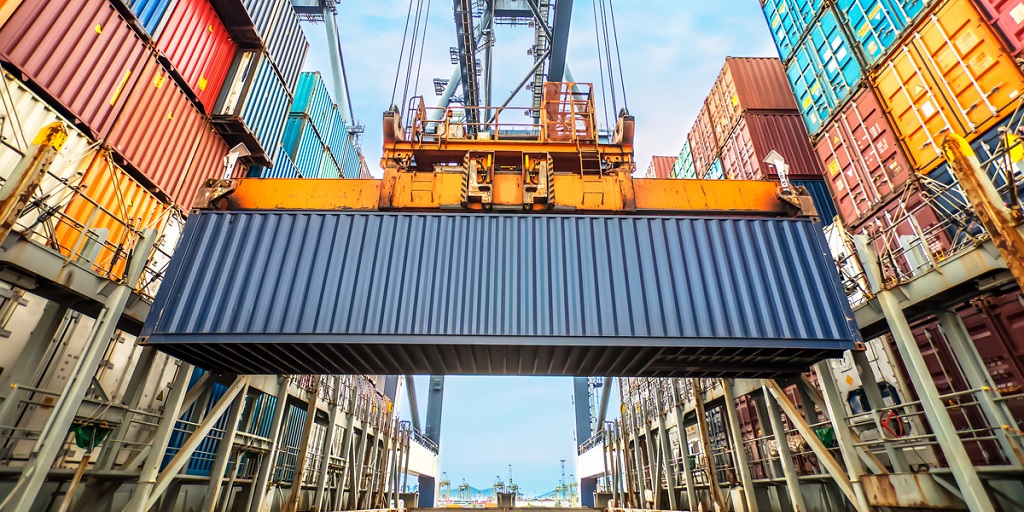
Global freight crisis challenging the brewing industry

Destabilised global freight supply chains could affect Australia’s brewing industry in the medium term as prices and lead times rise, but industry suppliers are prepared and ready according to Bintani and Cryer Malt.
An Australian Consumer and Competition Commission (ACCC) report released last month suggests that “intense pressure” is being placed on Australian exporters and importers as a result of the global logistics crisis.
Demand for cargo and “extreme” congestion across the global supply chain has caused major disruptions and delays. The report showed that freight rates on key global trade routes are currently seven times higher than they were just over a year ago and even at these rates, shipping lines cannot guarantee on-time delivery.
A stevedore told the ACCC that only 10 per cent of vessels arrived in their designated berth windows in 2020-21, which it says is the lowest rate on record.
This has been impacting brewers ordering new equipment from China, with months-long delays, but also affected other areas of brewing.
Ingredients suppliers Bintani and Cryer Malt source products from across the globe, and said that whilst they have seen the impact of the global freight crisis trickle down, they have been preparing for these outcomes.
“Challenges in the supply chain have increased enormously, we’re facing basically unprecedented levels of challenge,” explained Bintani joint-CEO Phil Meddings.
“It’s not just happened overnight, it’s been a progressive worsening, but it is dramatic, and affects everyone in two fold ways – causing issues in lead times and delays and issues in costs.
“The sky isn’t falling, it will be ok, but it is a big disruption and it’s good to have an awareness of what’s happening.”
Forecasting
David Cryer, recently recipient of the Lifetime Achievement Award at the 2021 Indies, said that they had seen disruptions impact bookings in the medium term.
“We’re seeing some disruptions, but it’s part of our business to deal with that. We’ve extended our lead times, we have it well covered,” he said.
“Part of our regular process is to reach out to brewers for forecasts to get an indication of what they need, including changes in type or volume of product, and to let us know as early as possible.”
Cryer Malt has also been expanding with a new distribution centre to keep up with demand, as has Bintani, which opened a new warehouse in Melbourne earlier this year.
“We’ve been increasing out stockholding and have in fact doubled our stockholding over the period in multiple warehouses, and moved into new facility, so we’ve been able to hold more stock and insulate to a degree against price changes and availability issues,” explained Phil Meddings.
“Whilst lead times on orders have increased, we’ve taken that into account and ordered further ahead.
“That doesn’t mean that we get it right all the time but by and large given the disruption on the inbound, the outbound disruption is pretty small – we’ve had very few stockouts.”
However the global freight crisis will have knock-on effects for the short and medium terms, including price changes.
“There’s a level of absorption and smoothing-out that happens, price rises aren’t immediately passed on or felt by various parties, and therefore there can be a lag effect,” Meddings continued.
“Over time I would certainly be recommending for all brewers to look at forecasting and have conversations with us on their key products and building flexibility into brewing schedules.”
However having been in the game for a long time, the ingredients supplier has been able to mitigate the impact of freight challenges with good relationships in the industry.
“It’s also helped us having good relationships with freight forwarding company, we’ve used same for 25 years and as our business has grown they look after us with rates and working their connections as well,” Meddings said.
The future of freight
There are repercussions following the global tumult caused by COVID-19 which will last into the short and medium term.
“Short term, into the first half of next year, the impact of the supply chain will be felt more at the consumer level and that’s not just in brewing,” said Meddings.
One aspect which has been influential in the beer space in Australia is buying local, and not just the beer. Brewers are looking to hops and malt a little closer to home, and even Furphy Engineering in Victoria has been delivering tanks to Australian brewers including Woolshed and Brick Lane.
However there will always be demand for global products.
“That was already a movement and a preference to buy locally and that will continue, but there’s a genuine difference in products that are sourced in different countries, English and German malts are genuinely different products, and will always be preferred for some beers.
“Whilst there is a general trend towards local, those products are different and unique and there will continue to be strong demand for them.
“Our job as a supplier is to deliver those and make them available,” Meddings explained.
But it won’t be a crisis forever.
“I expect to see it ease slightly in 2022,” predicted Cryer. “We’re not going to see a full reversion to where it used to be until 2023, there have been other times when container prices are low, now they have the upper hand and they are making the money.”
To mitigate any potential challenges, both Bintani and Cryer Malt suggested that accurate forecasting and flexibility is key.
“All we can do is order earlier and make good, sensible logistics solutions using routes that are safe, play safe and keep stock high,” said Cryer.
“The part brewers can play is being really clear about what they’re going to need and material changes, so pick up the phone and have a chat.”



